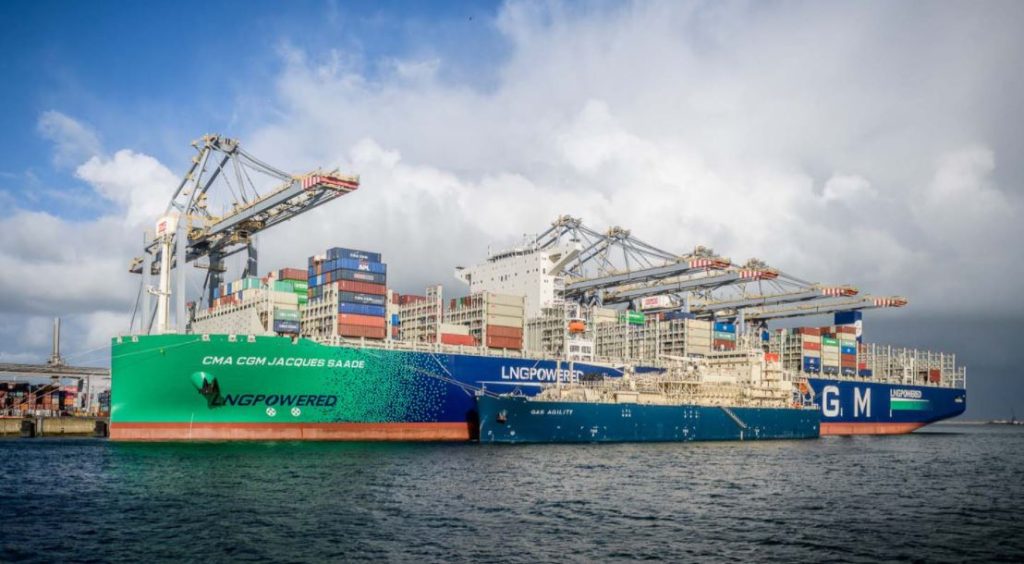French shipping giant CMA CGM and compatriot Engie have revealed plans for a second-generation biomethane production project in order to provide more supplies for CMA CGM’s fleet of LNG dual-fuel containerships.
CMA CGM, which aims to achieve net-zero carbon by 2050, already has a fleet of 30 dual-fuel “e-methane ready” ships in operation – a figure that will rise to 77 by the end of 2026.
Besides LNG-powered vessels, these include six 15,000-teu dual-fuel methanol-powered vessels.
The shipping firm has last year joined forces with France’s Engie to work on the industrial-scale production and distribution of synthetic methane and bio-LNG.
It also partnered with three other firms to create a French bio-LNG production unit, while it introduced a new shipping offer for its clients based on biomethane.
Most recently, the firm has joined the Jupiter 1000 industrial demonstrator project piloted by GRTgaz in Fos-sur-Mer, where the TotalEnergies-chartered LNG bunkering vessel Gas Vitality fuels CMA CGM’s containerships.
150 million euros
CMA CGM and Engie plan to make a final investment decision on the new biomethane production project named Salamander in late 2022, according to a joint statement.
Moreover, the total costs would reach some 150 million euros ($157 million), the partners said.
Majority-owned by Engie and CMA CGM, the project would produce up to 200,000 tons of renewable gas annually worldwide by 2028, to meet the needs of CMA CGM and the shipping industry.
Backed by the support of the Havre Seine Metropole urban community via the investment program “Le Havre, Ville portuaire intelligente” (Le Havre, a smart port city), the site in Le Havre would produce 11,000 tons of biomethane annually, starting in 2026, the statement said.
The unit would be fueled by dry biomass from local wood-waste sources, along with solid recovered fuel, and would produce the biomethane via pyrogasification process, the partners said.

